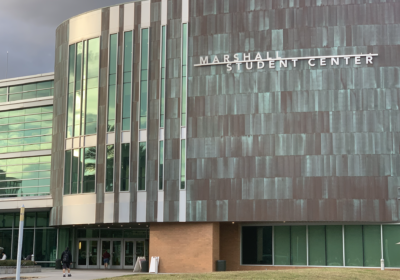Library to encourage open access for research
In recent years, a number of universities in the U.S., including Harvard and Princeton, have moved toward open-access models for their research.
In celebration of International Open Access Week, officials from Scholar Commons and ResearchOne are hoping to bring open-access research to USF.
Eileen Thornton, assistant director of communications for the Library, said open access is free and unrestricted access to published research and can be a valuable asset to the university.
“If you are doing research and you come across a link and you are not a subscriber to their network, they want to charge you like $50 — that’s not open access,” she said. “What the open-access movement aims to do is make research published and accessible in a way that students and researchers don’t have to pay fees to a publisher.”
Scholar Commons, launched in fall 2011, will be hosting event’s week in order to inform and encourage members of the university about the benefits of the open-access model. This will be the second year Scholar Commons has brought Open Access Week to USF as part of the national movement.
“Scholar Commons is the institutional repository for the university,” Rebel Cummings-Sauls, Library operations coordinator, said. “Our goal is to be the virtual showcase for the scholarly research at the university and that could be for faculty, staff and students.”
Addressing this year’s theme of “Redefining Impact,” officials from both Scholar Commons and ResearchOne will be hosting a workshop for librarians Tuesday on how they can help to encourage open access.
On Wednesday a workshop will be held for faculty and staff to show the benefits and tools Scholar Commons and open access offers.
“We want to show them how they can redefine their impact at the university by hosting free conferences on Scholar Commons, by showing them the access to tons of data they already have sitting on their machines, and how open access can actually increase their citation impact significantly,” Thornton said.
“For staff in particular,” Cummings-Sauls said. “They are projected to be cited six times more when they use open-access journals as opposed to paid journals.
Currently, Scholar Commons’ biggest collection is the thesis and dissertation collection provided by the graduate school. The groups will also be offering a workshop Oct. 24 for undergraduate and graduate students who cite research in their papers.
“You don’t have to subscribe to Scholar Commons or do anything to get the document, you just go to the link and download it,” Cummings-Sauls said. “It’s completely free.”
The last event for the week will be an open data competition. Cummings-Sauls said Scholar Commons will be using crowdcrafting.org to see who can produce the most data in a single day.
“We are going to have a specific project or subject that morning and try to see how much of an impact USF can have by uploading papers and research to that specific project,” she said.






